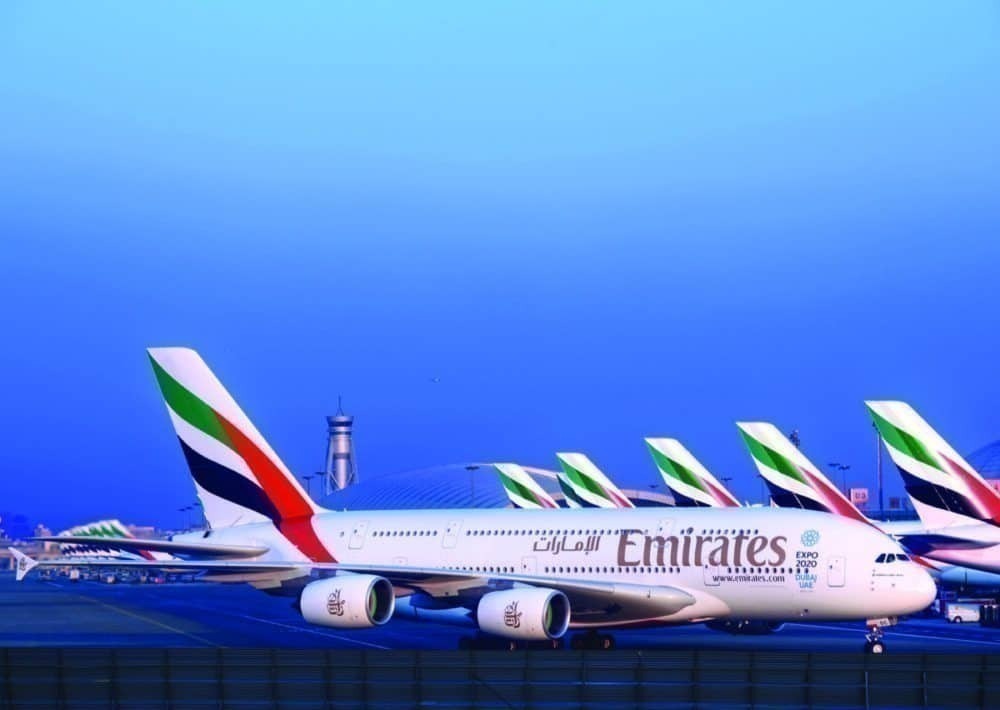Long-haul airline Emirates has been given an equity injection of some $2bn. The injection, received quietly and without formal announcement, was made by the Dubai government following the crown prince’s pledge of support back in March this year.

A $2bn bailout
Emirates has quietly received a large bailout from the Dubai government to help it weather the COVID crisis. It appears the airline received AED 7.3 billion ($2bn) from Dubai earlier this year, although neither the airline nor the government publicly announced this.
According to a report from Reuters, details of the sizeable cash injection were revealed in a bond document seen by the outlet. The prospectus documents the funds being released to Emirates after the crown prince of Dubai promised the airline enough equity to see it through the downturn.
Stay informed: Sign up for our daily aviation news digest.
Although Prince Sheikh Hamdan bin Mohammed Al Maktoum said in March that the state was “fully committed to supporting Emirates Airline” through the crisis, no public announcement of the funding was made.
Today, we renew our commitment to support a success story that started in the mid-1980s to reach its goal of sitting on the throne of global aviation. The Government of Dubai is committed to fully supporting @Emirates at this critical time & will inject equity into the company. pic.twitter.com/3cabmUDOVD
— Hamdan bin Mohammed (@HamdanMohammed) March 31, 2020
The crown prince noted the importance of Emirates to the economy of Dubai and said further details would be announced soon.
.@Emirates, our national carrier, positioned Dubai as an global travel hub and has great strategic value as one of the main pillars of Dubai’s economy, as well as the wider economy of the UAE. We will announce further details about the equity injection and more measures soon. pic.twitter.com/wdcrn2trO9
— Hamdan bin Mohammed (@HamdanMohammed) March 31, 2020
Severely affected
Being an airline that relies entirely on long-haul traffic, Emirates was one of the most severely affected by the COVID crisis. By mid-March, the airline was grounded entirely as the UAE put in place measures to ban all passenger flights. Even before that, Emirates had been drastically cutting back on international operations, as demand plummeted, and the world locked down.
As the weeks went by, Emirates began ferrying its A380s to storage locations, worried that international travel would take too long to pick up for the fleet to come back. However, the airline has shirked the idea that it would be subjecting a large number of A380s to early retirement and has more recently said it expects the entire fleet to be back in service by 2022.




While things have been slowly starting to pick up, with transit flights resuming in early June and A380 flights coming back in July, the impact on the carrier’s operations has been severe. In total, the airline is expected to reduce its workforce by around 15%, cutting 9,000 positions in total.
In the last few weeks, things have been bouncing back with some rapidity. Indeed, the carrier expects to resume its route network at 100% by next summer. However, frequencies may well be fewer, and getting to the end of this year is proving a challenge. As a result, just last week, Emirates asked its crew to take between one and three months unpaid leave in order to manage its costs.
Will the bailout be enough?
While a $2bn bailout is certainly sizeable, it’s not the biggest we’ve seen. As Emirates is so heavily reliant on long-haul, international travel, it follows that the impact of COVID will likely cut deeper and for longer than some other airlines. Therefore, it’s not surprising to see it getting a bailout from its owner, and we may well see further cash injections before the crisis is over.




What is concerning is the covert nature of the bailout. The lack of transparency over. The cash injection will likely add fuel to the fire of the US airlines’ accusations of illegal state aid. That could scupper the long-haul carrier’s chances of getting a US partnership in the future, something that President Tim Clark has been vocal about wanting.
With the airline due to post its first half results at the end of September, we’ll see then just whether the bailout has made a significant impact or not.



